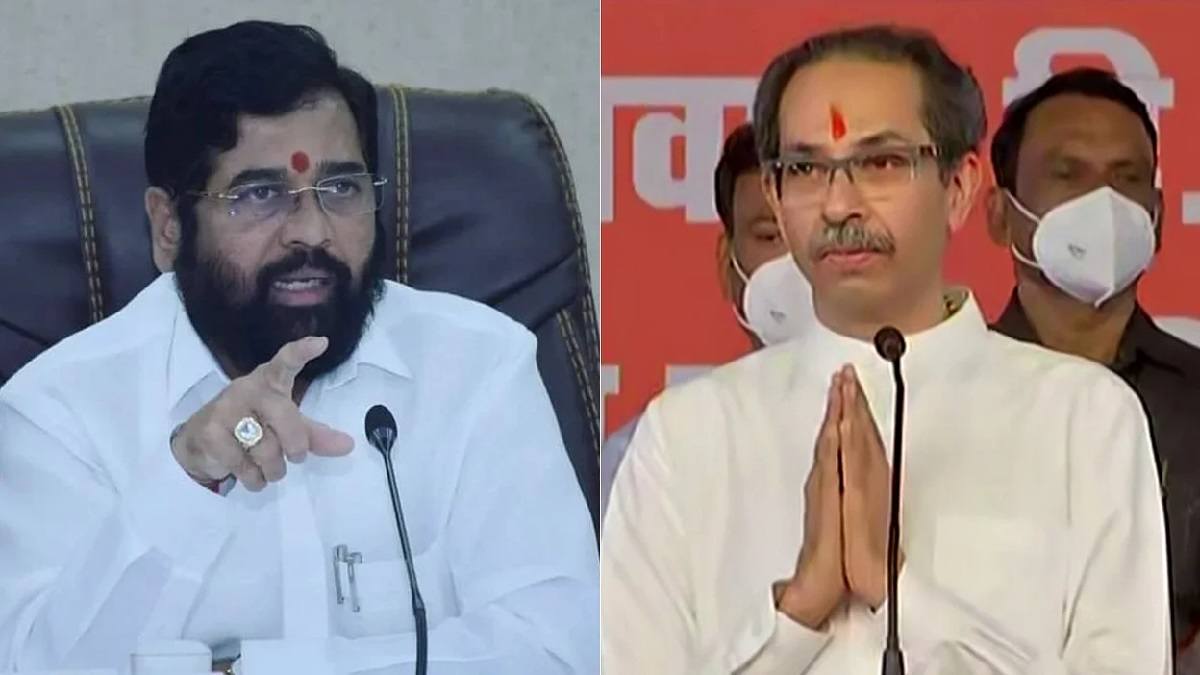The Supreme Court on Thursday pondered how it could reinstall Maharashtra’s Uddhav Thackeray administration even if it finds the Governor’s action in asking for a trust vote unlawful, given that the former Chief Minister resigned without facing the floor test, “accepting” that he was in the minority.
“That (restoring the government) would have been a sensible thing to do provided you had lost the trust vote on the floor of the Assembly. So you have plainly been removed from power because of a trust vote set aside,” said Chief Justice of India D Y Chandrachud, presiding over a five-judge Constitution bench hearing petitions filed in the aftermath of the Shiv Sena political crisis.
In Premium |The Supreme Court rules that threats and opposition cannot be grounds for the governor to order a floor test.
“Take a look at the conceptual conundrum. It is not true that you were deposed as a result of a trust vote that was improperly called by the Governor. “You elected not to, for whatever reason, because you didn’t want to face a trust vote…,” he explained.
Senior Advocate A M Singhvi, representing the Thackeray group, urged the court, which also included Justices M R Shah, Krishna Murari, Hima Kohli, and P S Narasimha, to restore the status quo ante.
The bench reserved its decision on the case.
The debate began with CJI Chandrachud asking Singhvi, “What happens if we conclude that the Governor did not exercise lawful power to conduct a trust vote?”
“Then everything crumbles,” the senior attorney answered.
Singhvi dismissed Thackeray’s resignation as a “red herring” after the CJI pointed out that he resigned without facing the floor test. The senior counsel claimed the former CM’s “resignation and not facing trust vote is irrelevant”.
CJI Chandrachud, on the other hand, compared it to the court being urged to reinstate a government that had admitted to being in the minority.
“How can the court reinstate a Chief Minister who did not even face the floor test?” Justice Shah questioned.
“Your Lordship will not reinstate anyone… “Your Lordship is, should, and does, and (S R) Bommai (ruling) states it more graphically, restore the status quo ante,” Singhvi added.
The CJI inquired whether he was stating Thackeray resigned solely because the Governor asked him to face a trust vote. “Absolutely,” said Singhvi, adding that Thackeray put in his papers after bringing the suit before the top court and made it sub-judice. “After I said this is completely unfamiliar to law, don’t allow it to continue on”.
He claimed the Governor’s instruction to organise a trust vote was illegal since he did so by recognising a faction of 34 legislators and “the CM’s participation or absence of involvement will not lessen that fundamental illegality”.
“And you’re frankly acknowledging that you resigned because the trust vote was going to go against you,” the CJI added.
“The penalty of it is known to me,” Singhvi remarked when illegal conduct is committed.
The court further pressed the Thackeray camp on their claim that the Governor could not have called for a trust vote based on a letter sent by a portion of Shiv Sena MLAs because internal party issues are not within the Governor’s purview.
Referring to a situation in which a number of parliamentarians claim to have withdrawn their support for a leader, the CJI wondered whether the Governor might then look into it on the grounds that it might affect the House’s strength.
Senior Counsel Kapil Sibal, who appeared on behalf of the Thackeray group, stated that it could not be done and that if it is allowed, no majority is required, and even 2-3 MLAs will be able to accomplish it. He said this had happened before the 10th Schedule was enacted.
Reminding the House that the essential concept of parliamentary democracy is that the government must be accountable to and have the faith of the House, the CJI pointed to a circumstance in which half of the lawmakers have lost faith in a government and questioned what can be done in such a case. “According to your logic, the Governor can never call a trust vote… which means that the government must continue even though it now has just half of its strength in the House. “It’s probably fallen to a complete minority,” he told Sibal.
The senior counsel stated that the only way out is for members to vote against the Finance Bill, which would result in the government’s demise.
On Wednesday, the CJI questioned the Governor’s role, saying that he must have wondered what had suddenly happened that after three years of enjoying the fruits of power, a segment of MLAs decided to leave the Maha Vikas Aghadi government.
Reacting to this, Senior Advocate N K Kaul, representing the Eknath Shinde group, stated that it is not within the Governor’s purview. According to that logic, questions could be raised about why the Shiv Sena broke off its pre-election partnership with the BJP.
